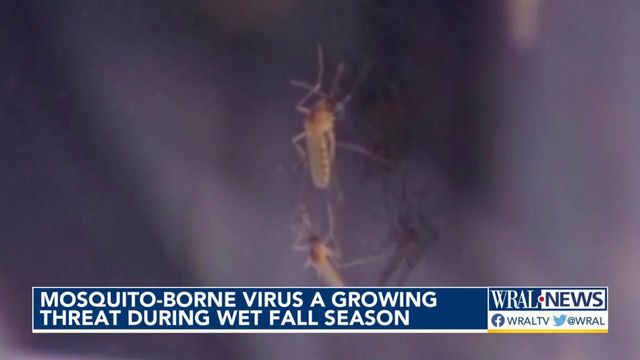Hurricanes, storms increase odds for West Nile Virus to circulate
Earlier this week, the North Carolina Department of Health and Human Services announced the first death this year associated with the mosquito-borne "West Nile Virus". It involved a man from Cumberland County.
Posted — UpdatedSome are carriers of "West Nile Virus" and can transmit the disease to humans. NC Public Health Entomologist Mike Doyle says, "The highest risk are people [age] 50 and older. Those are the folks who more likely will have a severe neurological reaction."
Doyle says mosquitoes tend to be evening and morning biters, however, with cool overcast days, mosquitoes can bite any time of day.
"So having repellent on your front porch, on your back porch, in your car, whenever you go somewhere with your kids, pretty much any time you go outside," is a good practice, said Doyle.
He recommends repellents with the ingredient "DEET" which he says is the most proven long-term effective product available.
In any given year there are anywhere from zero to 10 human cases of "West Nile Virus" in the state. "We expect to have a few more cases this year which will probably break the record for North Carolina," said Doyle.
He added, "We really want people to stay alert, to wear repellent, to reduce adult mosquitoes around their home, if that’s possible."
Doyle also recommends organizing efforts in your neighborhood or larger community to get rid of small pools of water where mosquitoes breed.
Mosquitoes only need about a quarter-inch of water in which to breed.
Related Topics
• Credits
Copyright 2024 by Capitol Broadcasting Company. All rights reserved. This material may not be published, broadcast, rewritten or redistributed.






